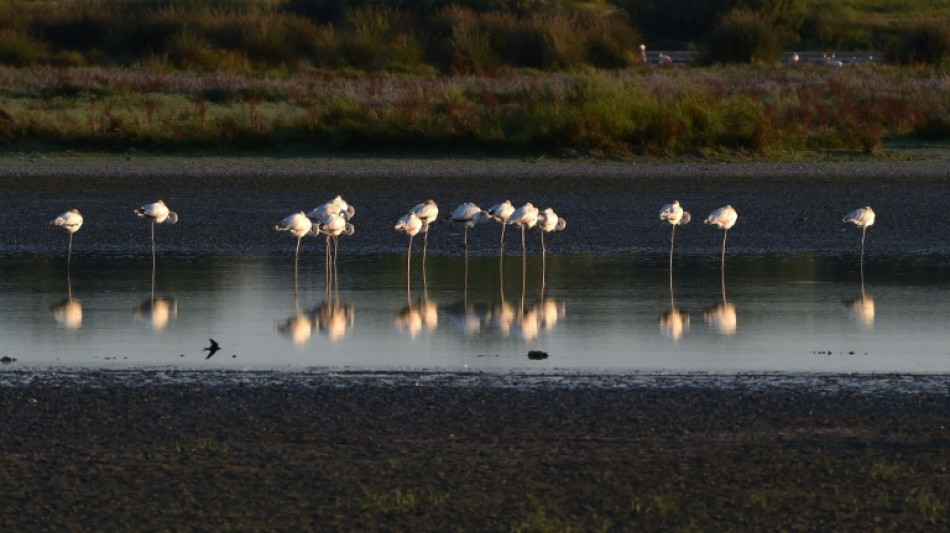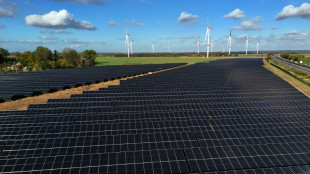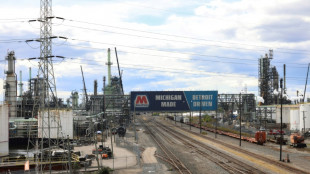

Spain vows to block farming near threatened wetlands
Spain has vowed to block a regional plan to legalise farming near one of Europe's largest and fauna-rich wetlands, where water supplies have plunged due to climate change and agriculture.
The proposal to rezone lands near the huge Donana National Park in the southern Andalusia region comes amid a prolonged drought and it has drawn the ire of Brussels.
The area is home to many rare species such as the Iberian lynx and on the route of millions of migratory birds, including flamingos, spoonbills and ibis.
"Donana will not be touched, Donana is the heritage of Andalusians, of all Spaniards," Prime Minister Pedro Sanchez warned.
Andalusia's parliament voted Wednesday to consider the plan proposed by the region's conservative Popular Party (PP) government.
If it becomes law, roughly 2,000 hectares (3,700 acres) near the park and its endangered wetlands will be declared irrigable.
This would grant an amnesty to many unauthorised farms, mainly growing strawberries, that have sprouted here.
A final vote on the proposal -- which is also backed by far-right party Vox -- is due soon. It is expected to pass as the PP and Vox have a majority in the regional parliament.
Sanchez's government has said it will challenge the proposal in court if approved.
Sitting on an estuary where the Guadalquivir River meets the Atlantic Ocean, the park streetches across 100,000 hectares of forests, lagoons, marshes and dunes.
- Not enough water -
A study by the Spanish National Research Council (CSIC) published last week said 59 percent of the park's largest lagoons have not been filled "since at least 2013".
It blamed changes in temperature and precipation in the area, as well as the "increase in the amount of cultivated land".
Defenders of the proposal argue it will help farmers who missed out during a previous regularisation of farms in the area in 2014 under a Socialist government.
The PP says the plan will not hurt the wetlands since the newly regularised farms will only use surface water.
But environmentalists and the central government disagree, saying it will increase the strain on the park's stressed aquifer.
"The Andalusia government knows perfectly well that there will never be enough surface water because it is already exhausted," Spain's Ecological Transition Minister Teresa Ribera told the El Pais newspaper on Sunday.
"We can't complain that there is no water, about the drought, and at the same time promise water that doesn't exist."
She accused Andalusia's government of trying to woo farmers ahead of regional and local elections on May 28 and a year-end general election.
- 'Put order to chaos' -
The head of the regional government, Juan Manuel Moreno Bonilla, accuses Sanchez of hypocrisy, saying the Socialists did not reverse the decline of Donana when they governed Andalusia for 36 years until 2019.
"It is very frivolous Donana will be defended by those who allowed aquifers to be violated for years," he said, adding that his government's plan will "put order to chaos".
Spain's central government has warned the country risks being slapped with fines by the European Union if the plan goes ahead.
The European Court of Justice condemned Spain in 2021 for failing to protect the natural reserve and threatened Madrid with fines if the situation did not improve.
"It's an issue which we're following closely. We're in touch with the Spanish authorities on that," European Commission spokesman Tim McPhie said.
Huelva, the drought-prone province where the park is located, produces 300,000 tonnes of strawberries a year, 90 percent of Spain's output.
Known locally as "red gold", strawberry farming employs up to 100,000 people and accounts for nearly eight percent of Andalusia's economic output.
F.Coineagan --NG



